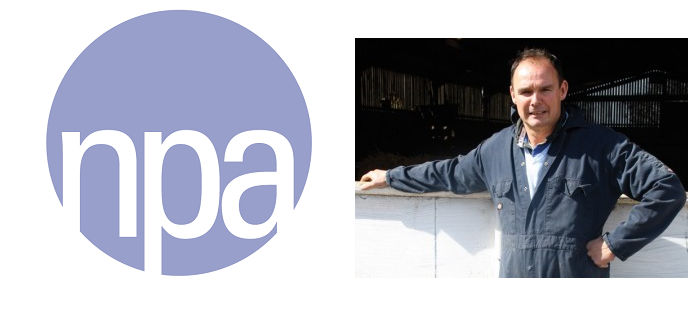Buying livestock feed on forward contracts didn’t work last year for UK pig farmers, according to the National Pig Association (NPA).
Survey findings by the association show that nearly all producers are losing £7 on every slaughter pig they produce as a result of buying wheat and soya forward last year, when it appeared prices had reached their lowest point.
“This is knocking a big hole in our British premium for higher welfare pigs,” said NPA chairman Richard Lister (pictured above). “It makes sense for pig-keepers to reduce risk by buying some feed forward when prices appear competitive, but it’s like taking a punt at Ladbrokes, and it’s painful when producers get it wrong.”
The NPA survey revealed that 78% of respondents paid £11-£20 a tonne more than current spot prices for soya, while 46% of respondents paid £11-£20 a tonne more than current spot prices for wheat.
While stating that British producers are making a loss on every pig they sell, NPA agreed they are still “better placed than their continental counterparts, as British pork attracts a 20p-30p a kilo premium”.
Although some of this is attributable to the strength of sterling versus the euro, a significant part is created by the British pig industry’s higher welfare husbandry, which is valued by retailers and consumers.
Seven supermarkets, in particular, are classed as ‘NPA hundred-percenters’, as they continue to source 100% British fresh pork. These are Aldi, the Co-op, Lidl, M&S, Morrisons, Sainsbury’s and Waitrose.
“We’d like to remind all retailers that British pig producers have a world-wide reputation for their high-welfare,” said NPA chief executive Dr Zoe Davies. “Producing high-welfare pigs outdoors or on straw carries a significant cost disadvantage, however, and retailers must be mindful not to kill the golden goose.
“If they do, they will have let down their suppliers and they will have let down their customers who continue to demonstrate they want reasonably priced high-welfare, quality-assured British pork.”




